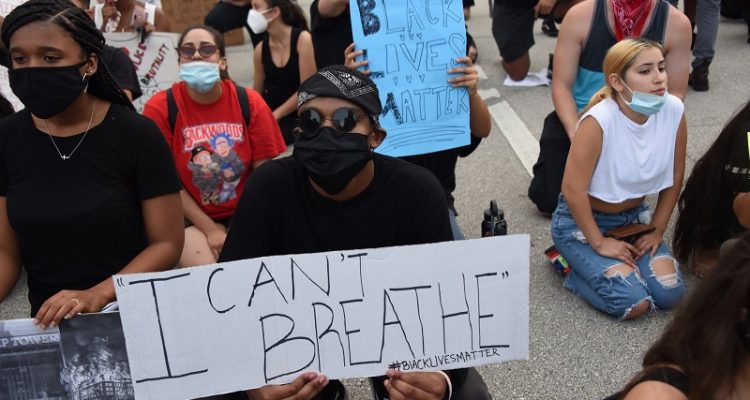The centuries of systemic racism in America that permeates every crevice of society has finally come to a head.
The death of George Floyd in Minneapolis revealed the virtual knee to neck applied to people of color for eons.
However, now that the energy is steered towards justice, the hip hop community has to evaluate its role.
But after all the verses on police brutality is the community taking advantage of a potential carpe diem moment?
Salute The Architects
There are two schools of hip hop: true school and new school. Within the two categories lie a generation and cultural gap.
The new school has rapped extensively about their penchant for luxury and in many instances, has given a soundtrack for an optimistic post-racial world. With the exception of major artists like Kendrick Lamar, J. Cole, Joyner Lucas, and the like, the others of the generation generally stayed away from racial issues.
They chose to expose mental illness and drug abuse issues affecting their segment of the community.
However, socially conscious are the bedrock of the true school generation. Public Enemy speaking raw truth to power with a militant’s sense of urgency. The Native Tongue original black hippy movement, hip hop was built off the protest.
But the voices of the originators are muted. The culture doesn’t respect its elders like fans of rock n roll. It is now that Chuck D, Sistah Souljah, and KRS-One are needed the most. That requires the culture to tune them in and tune out all the noise bombarding us all daily.
Still, there have been a few talking direct solutions for communities of color. Gaining the economic independence needed to balance the scales of power and government is what is needed.
Thank You Dame Dash
The community owes a huge debt to those who have been bullish on economic progress. Hip hop is one of the only cultures that has spawned multiple millionaires and impacted global culture.
However, if it wasn’t for people like Dame Dash, Master P, and Ice Cube, who have been unapologetic about their desire for ownership of the culture to reflect its creators.
Dash has been vehement about outing interlopers in high positions. He has always encouraged the community to do for self and hire those that look like them.
Power comes from financing politicians and demanding change with a social and economic base. Currently, the CEO’s of hip hop’s most revered nineties and early 2000’s music movements are leading that charge by example.
But its not enough, as they have the financial resources to make a larger stand.
Hip Hop Summit Action Network?
Founded in 2001, the Hip-Hop Summit Action Network (HSAN) is dedicated to harnessing the cultural relevance of Hip-Hop music to serve as a catalyst for education advocacy and other societal concerns fundamental to the empowerment of youth.
The non-profit, non-partisan national coalition of Hip-Hop artists, entertainment industry leaders, education advocates, civil rights proponents, and youth leaders was very organized.
However, there has been no noise from them recently. Revolt TV held a Hip Hop Summit in Atlanta and Los Angeles last year.
However, right now in the midst of the revolution, no new unified Hip Hop movement to replace their good works. However, social media has allowed all artists and influencers to use their individual platforms to raise awareness.
We have seen artists on the front lines. However, it’s hard to decipher whether it’s for project visibility or genuine concern for the community.
A new brigade is needed that combines the money of Dr. Dre, JAY-Z, and Diddy with the grassroots activism of Dead Prez.
Until then, Hip Hop will continue to look like a landscape of independents; focused only on their audience and not the collectivization of ideas and cultural currency.
The culture doesn’t need one leader but it does need a consortium that “can’t stop, won’t stop” until freedom.
